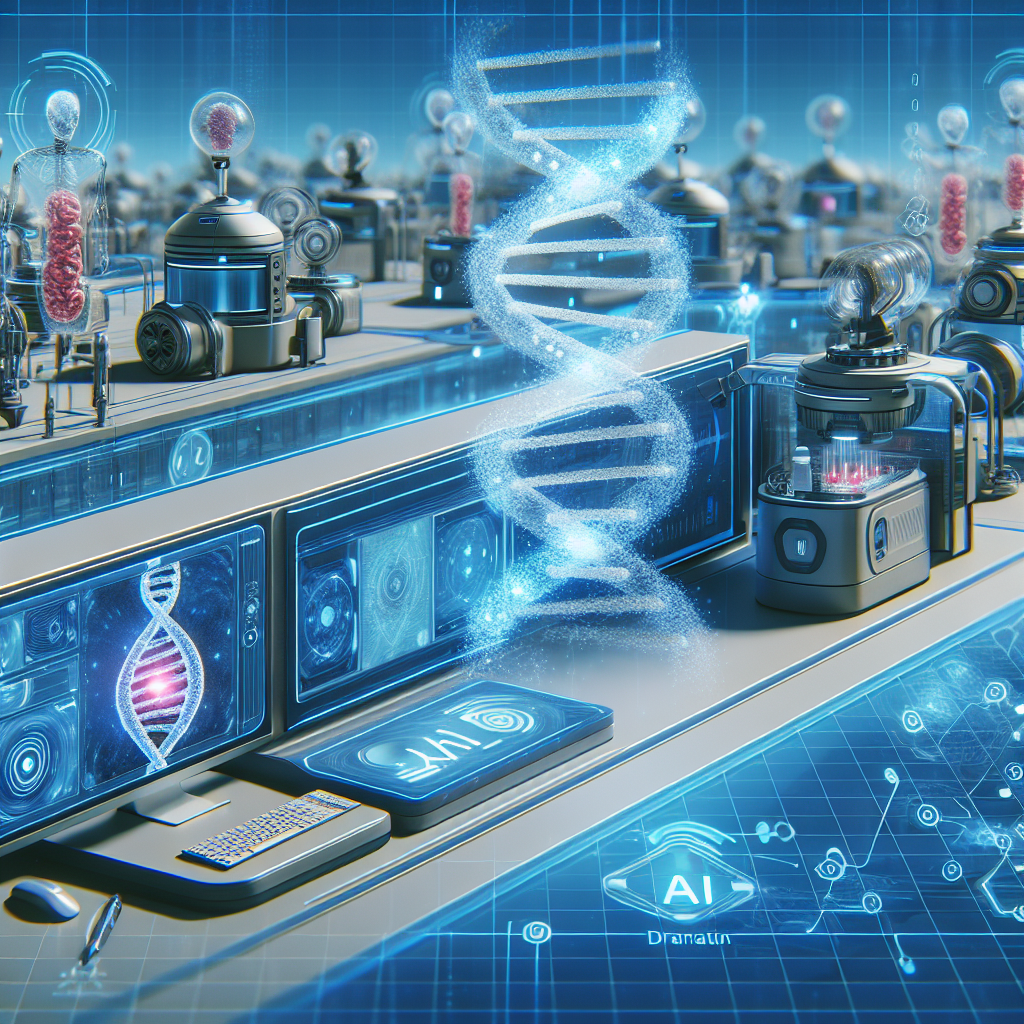The Role of AI Automation in Personalized Medicine
Personalized medicine is an innovative approach to healthcare that takes into account an individual’s unique genetic makeup, lifestyle, and environment to tailor treatment plans and therapies to meet their specific needs. This approach aims to provide more effective and targeted treatments, leading to better outcomes for patients.
In recent years, the integration of artificial intelligence (AI) automation in personalized medicine has revolutionized the way healthcare professionals can analyze vast amounts of data and make informed decisions about patient care. AI has the ability to process and analyze data at a speed and scale that is beyond human capability, making it an invaluable tool in personalized medicine.
AI Automation in Data Analysis
One of the key roles of AI automation in personalized medicine is in data analysis. With the advancement of technology, healthcare providers now have access to vast amounts of patient data, including genetic information, medical records, and lifestyle factors. AI algorithms can analyze this data, identify patterns, and make predictions about a patient’s risk of developing certain diseases or how they may respond to specific treatments.
For example, AI algorithms can analyze genetic data to identify specific gene mutations that may increase a patient’s risk of developing cancer. By identifying these mutations early, healthcare providers can develop personalized screening and prevention plans to help reduce the patient’s risk of developing cancer.
AI Automation in Treatment Planning
AI automation can also play a crucial role in developing personalized treatment plans for patients. By analyzing a patient’s genetic makeup, medical history, and lifestyle factors, AI algorithms can identify the most effective treatment options for that individual. This can help healthcare providers tailor treatments to the specific needs of each patient, leading to better outcomes and fewer side effects.
For example, AI algorithms can analyze a patient’s genetic data to determine how they may respond to a particular medication. This information can help healthcare providers choose the most effective and safest treatment for that patient, reducing the risk of adverse reactions and improving the overall treatment outcome.
AI Automation in Drug Discovery
Another important role of AI automation in personalized medicine is in drug discovery. AI algorithms can analyze vast amounts of data to identify potential drug targets, predict how drugs may interact with the body, and develop new treatment options for patients. This can help accelerate the drug discovery process and bring new treatments to market more quickly.
For example, AI algorithms can analyze genetic data to identify specific gene mutations that may be driving a patient’s disease. By understanding the underlying genetic mechanisms of the disease, researchers can develop targeted therapies that address the root cause of the disease, leading to more effective treatments and better outcomes for patients.
FAQs
Q: How does AI automation ensure patient privacy and data security in personalized medicine?
A: AI automation in personalized medicine relies on strict protocols and encryption methods to ensure patient privacy and data security. Healthcare providers must adhere to strict regulations and guidelines to protect patient data and ensure that it is not shared or accessed by unauthorized parties.
Q: How can AI automation improve the accuracy of personalized medicine treatments?
A: AI automation can improve the accuracy of personalized medicine treatments by analyzing vast amounts of data and identifying patterns that may not be apparent to human healthcare providers. This can help healthcare providers make more informed decisions about treatment options, leading to better outcomes for patients.
Q: What are the limitations of AI automation in personalized medicine?
A: While AI automation has the potential to revolutionize personalized medicine, there are limitations to consider. AI algorithms are only as good as the data they are trained on, so it is important to ensure that the data used is accurate and representative of the population. Additionally, AI algorithms may not always be able to account for all factors that may influence a patient’s health, so human healthcare providers must still play a crucial role in decision-making.
In conclusion, AI automation plays a crucial role in personalized medicine by analyzing data, developing treatment plans, and accelerating drug discovery. By harnessing the power of AI, healthcare providers can provide more targeted and effective treatments for patients, leading to better outcomes and improved quality of care. As technology continues to advance, the role of AI in personalized medicine will only continue to grow, revolutionizing the way healthcare is delivered and improving the lives of patients around the world.

